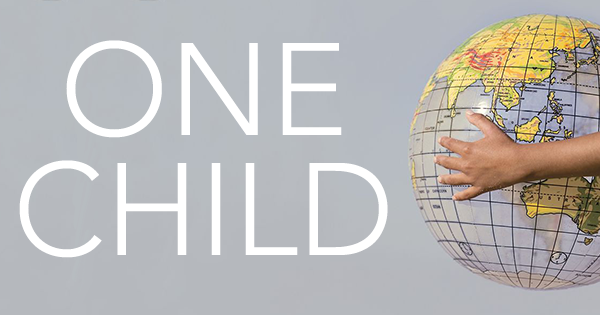One Child
Read an excerpt from Sarah Conley’s new book about the morality of having children in our imperiled world

There are 7.3 billion people in the world right now, and every day, the population grows by 228,000. Thanks to globalization, technology, and increasing wealth, each person’s environmental footprint increases as well—an individual in the United States or Australia, for example, is responsible for about 20 tons of carbon emissions over his or her lifetime, compared to a fraction of a ton for poorer nations. Overpopulation has huge ramifications for the environmental fate of the planet. That turns the decision to have a child into an ethical choice—a choice that, philosopher Sarah Conly argues, only has a one moral outcome: we do not have the right to have more than one child.
“If there is a high probability,” she writes in One Child, “that our actions will cause great sufferings to others and deprive them of the liberties we ourselves cherish”—like sufficient resources, room to live, and a moderately green planet—“we are doing something we don’t have a right to do.” Not to mention, she contends, that a reduced global population will result in less inequality, more equitable resource sharing, and a greener planet—without any need for China’s forced abortions and sterilizations. Read Conly’s suggestion, below, on how a one-child policy could be upheld through incentives and disincentives.
Consider, again, taxes. As said above, we could offer a tax break to those who don’t have more children. Or, we could disincentivize having more children by charging more taxes to those who do—the opposite of our present system. As discussed above, when private individuals have children, that is a public burden. Even aside from the future environmental effect, children are (through no wrongdoing of their own!) a burden on public resources—not, in normal circumstances, an unwelcome burden, but nevertheless a burden in the sense that they have costs for those who themselves don’t benefit from their presence. Water, sewers, roads, fire departments, law enforcement, and public education—all of these are paid for in part by someone other than the parents, and it is the contribution of these others that makes having children as cheap as it is—cheap, that is, relative to what it would be if the costs weren’t shared. It is not unreasonable to think that those who choose to use more public resources should pay more. It’s true that those who use more water from a town system (rather than a well), for example, do pay more to the local municipality, but they aren’t (typically) paying their full costs. In a system of fair taxes, those who use more would pay more. To make such a system equitable, rather than a lump sum (such as is now given as a tax deduction to those who have children), we would arrange the tax liability according to the income of the individual, a sliding scale so that all are equally disincentivized despite the different amounts they must pay. This is similar to the way we now calculate taxes, and a method we generally accept (but without the loopholes that allow for unfairness).
As I’ve said, it’s hard to imagine any policy that really affects rich and poor in just the same way when the disparity between the two is very great. This policy could at least do relatively well in that respect, though, and compares favorably to some other suggestions. Cutting welfare benefits to those who have more than a certain number of children, for example, is clearly inequitable, since only the poor will feel it. The argument for this kind of inequitable arrangement is apparently that those who receive welfare benefits are already parasites on society, and thus can justly have their income differentially restricted. Even if this were true (and I don’t think it is), it ignores the fact that when it comes to the environment, we are all parasites—and those who consume more than their share are the most parasitical of the lot. What we need are disincentives that are fair and effective, and that don’t pick out one class or population as somehow blameworthy. We need policies that discourage all of us from having more children than we can all—now and in the future—live with.
Reprinted from One Child: Do We Have a Right to More? by Sarah Conly with permission from Oxford University Press, Inc. Copyright © 2015 by Oxford University Press.

